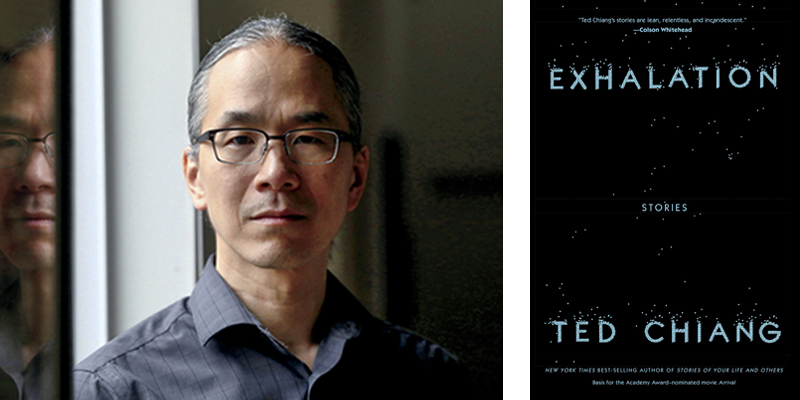
A Sense of Doubt blog post #1803 - Ted Chiang - Powell's Q&A
As of this writing, it's February 3rd. I have fallen far behind again. Quick share with no commentary as part of the catching up plan.
https://www.powells.com/post/qa/powells-qa-ted-chiang-author-of-exhalation
by Ted Chiang,
May 7, 2019 9:07 AM
Describe your latest book.
My new book is titled Exhalation, and it's a collection of short fiction. It contains all the stories I've published since my first collection, as well as two stories appearing for the first time. Some of the stories originally appeared in limited print-run editions, so it's nice to have them widely available now. The stories have pretty varied settings — ranging from medieval Baghdad to the near-future to a universe made only of metal — but the theme of free will recurs in many of them.
What was your favorite book as a child?
I don't know if I would call it my favorite, but I have powerful memories of a volume that contained both The Swiss Family Robinson and Robinson Crusoe bound together back-to-back so each book got its own cover illustration. While I remember very little of the plot of either novel, I know I read that volume until it fell apart.
My new book is titled Exhalation, and it's a collection of short fiction. It contains all the stories I've published since my first collection, as well as two stories appearing for the first time. Some of the stories originally appeared in limited print-run editions, so it's nice to have them widely available now. The stories have pretty varied settings — ranging from medieval Baghdad to the near-future to a universe made only of metal — but the theme of free will recurs in many of them.
What was your favorite book as a child?
I don't know if I would call it my favorite, but I have powerful memories of a volume that contained both The Swiss Family Robinson and Robinson Crusoe bound together back-to-back so each book got its own cover illustration. While I remember very little of the plot of either novel, I know I read that volume until it fell apart.
When did you know you were a writer?
I'd make a distinction between "trying to be a writer" and "knowing one is a writer." I started trying to be a writer when I was in sixth grade, which was when I first attempted to write a novel. Before long I switched to short fiction, and I've stuck with that ever since. But it took many, many years before I was able to call myself a writer, even after I had stories published. I repeatedly encountered the assertion that a writer is unable to not write, and I found it pretty easy to not write, so I assumed that I wasn't really a writer. It probably wasn't until I was 40 or so that I came to accept the idea that writing very slowly was also a legitimate way of being a writer.
What do you care about more than most people around you?
In the context of speculative fiction, I think I'm atypically interested in the question of how do the characters in a story understand their universe. I've heard some people say that they don't care about the plausibility of an invented world as long as the characters are believable. To me these aren't easily separated. When reading a story I often find myself thinking, Why has no one in this world ever wondered such-and-such? Why has no one ever asked this question, or attempted this experiment?
Share an interesting experience you've had with one of your readers.
Many years ago a reader came up to me and told me that a story of mine had changed her politics. That was something I had never heard before, or since. My work isn't explicitly political; I'd characterize it as more philosophical in its focus. But over time I've come to appreciate some of the ways the philosophical and the political intersect, and that comment from that reader probably contributed to my education.
Have you ever made a literary pilgrimage?
It wasn't exactly a pilgrimage, but once when I was visiting the University of California at Riverside, I was given a tour of the Eaton collection, one of the world's largest collections of science fiction. I asked to see a copy of the original publication of "Flowers for Algernon," the classic story by Daniel Keyes. They promptly brought out an issue of The Magazine of Fantasy and Science Fiction from 1959. The table of contents for that issue is interesting: it contains an essay by Aldous Huxley and the first English-language appearance of a story by Anton Chekhov, both of whose names appear on the cover. Daniel Keyes's name isn't on the cover, but his is the story we all remember.
I'd make a distinction between "trying to be a writer" and "knowing one is a writer." I started trying to be a writer when I was in sixth grade, which was when I first attempted to write a novel. Before long I switched to short fiction, and I've stuck with that ever since. But it took many, many years before I was able to call myself a writer, even after I had stories published. I repeatedly encountered the assertion that a writer is unable to not write, and I found it pretty easy to not write, so I assumed that I wasn't really a writer. It probably wasn't until I was 40 or so that I came to accept the idea that writing very slowly was also a legitimate way of being a writer.
What do you care about more than most people around you?
In the context of speculative fiction, I think I'm atypically interested in the question of how do the characters in a story understand their universe. I've heard some people say that they don't care about the plausibility of an invented world as long as the characters are believable. To me these aren't easily separated. When reading a story I often find myself thinking, Why has no one in this world ever wondered such-and-such? Why has no one ever asked this question, or attempted this experiment?
Share an interesting experience you've had with one of your readers.
Many years ago a reader came up to me and told me that a story of mine had changed her politics. That was something I had never heard before, or since. My work isn't explicitly political; I'd characterize it as more philosophical in its focus. But over time I've come to appreciate some of the ways the philosophical and the political intersect, and that comment from that reader probably contributed to my education.
Have you ever made a literary pilgrimage?
It wasn't exactly a pilgrimage, but once when I was visiting the University of California at Riverside, I was given a tour of the Eaton collection, one of the world's largest collections of science fiction. I asked to see a copy of the original publication of "Flowers for Algernon," the classic story by Daniel Keyes. They promptly brought out an issue of The Magazine of Fantasy and Science Fiction from 1959. The table of contents for that issue is interesting: it contains an essay by Aldous Huxley and the first English-language appearance of a story by Anton Chekhov, both of whose names appear on the cover. Daniel Keyes's name isn't on the cover, but his is the story we all remember.
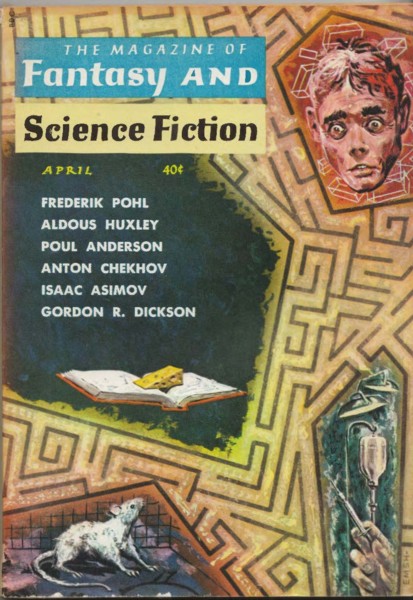
If
someone were to write your biography, what would be the title and subtitle?
I once read a review that described me as "tantalizingly unprolific," and my then-girlfriend (now wife) said I should get that phrase printed on a T-shirt. I suppose that would be a reasonable title for a biography.
Offer a favorite passage from another writer.
I live in admiration of the prose of John Crowley. Here's a passage from his novel Little, Big, in which the protagonist is studying an orrery:
I once read a review that described me as "tantalizingly unprolific," and my then-girlfriend (now wife) said I should get that phrase printed on a T-shirt. I suppose that would be a reasonable title for a biography.
Offer a favorite passage from another writer.
I live in admiration of the prose of John Crowley. Here's a passage from his novel Little, Big, in which the protagonist is studying an orrery:
The screws, the balls,
the rods, the springs were a syntax, not a picture. The orrery didn't model the
Solar System in any visual or spatial way, if it had the pretty green-and-blue
enameled Earth would have been a crumb and the whole machine would have needed
to be ten times the size it was at least. No, what was expressed here, as by
the inflections and predicates of a tongue, was a set of relations: and while
the dimensions were fictional, the relations obtained all through, very neatly:
for the language was number, and it meshed here as it did in the heavens:
exactly as.
It had taken him a long time to figure that out, being unmathematical as well as unmechanical, but he had its vocabulary now, and its grammar was coming clear to him. And he thought that, not soon perhaps but eventually, he would be able to read its huge brass and glass sentences with some comprehension, and that they would not be as Caesar's and Cicero's had turned out to be, mostly dull, hollow and without mystery, but that something would be revealed equal to the terrific encoding it had received, something he very much needed to know.
It had taken him a long time to figure that out, being unmathematical as well as unmechanical, but he had its vocabulary now, and its grammar was coming clear to him. And he thought that, not soon perhaps but eventually, he would be able to read its huge brass and glass sentences with some comprehension, and that they would not be as Caesar's and Cicero's had turned out to be, mostly dull, hollow and without mystery, but that something would be revealed equal to the terrific encoding it had received, something he very much needed to know.
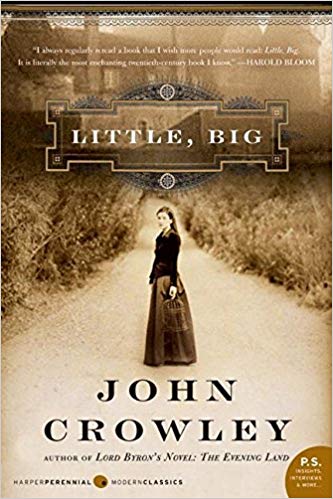
What's
your biggest grammatical pet peeve?
While it's a usage issue rather than a grammar one, I hate the way the word "literally" has come to mean its opposite. I know that words can have multiple meanings and that language evolves, but whenever someone says something like, "I literally grabbed the bull by the horns," I want to look at them and say, "Did you now?" I realize this makes me a crabby old man. I dread the day when people preface their remarks with "seriously" as a way of indicating that they're joking.
Do you have any phobias?
I have mild acrophobia. I can climb ladders fine, but looking down from a high ledge makes me nervous. I drew on this when writing "Tower of Babylon," in which miners climb a tower to dig through the vault of heaven.
Name a guilty pleasure you partake in regularly.
Video games. I don't want to classify it as a guilty pleasure, though, because that would suggest that it's not a medium worthy of serious attention and I think it is. While not all video games provide emotionally powerful experiences, the same thing could be said about movies and television and I think it would be incorrect to dismiss them as guilty pleasures.
While it's a usage issue rather than a grammar one, I hate the way the word "literally" has come to mean its opposite. I know that words can have multiple meanings and that language evolves, but whenever someone says something like, "I literally grabbed the bull by the horns," I want to look at them and say, "Did you now?" I realize this makes me a crabby old man. I dread the day when people preface their remarks with "seriously" as a way of indicating that they're joking.
Do you have any phobias?
I have mild acrophobia. I can climb ladders fine, but looking down from a high ledge makes me nervous. I drew on this when writing "Tower of Babylon," in which miners climb a tower to dig through the vault of heaven.
Name a guilty pleasure you partake in regularly.
Video games. I don't want to classify it as a guilty pleasure, though, because that would suggest that it's not a medium worthy of serious attention and I think it is. While not all video games provide emotionally powerful experiences, the same thing could be said about movies and television and I think it would be incorrect to dismiss them as guilty pleasures.
÷ ÷ ÷
Ted Chiang’s fiction has won four Hugo,
four Nebula, and four Locus awards, and has been featured in The Best
American Short Stories. His debut collection, Stories
of Your Life and Others, has been translated into 21 languages.
He was born in Port Jefferson, New York, and currently lives near Seattle,
Washington. Exhalation is his most recent book.
+++++++++++++++++++++++++++++++++++++++++++++++++++++++++++++++++++++++
+++++++++++++++++++++++++++++++++++++++++++++++++++++++++++++++++++++++
+++++++++++++++++++++++++++++++++++++++++++++++++++++++++++++++++++++++
- Bloggery committed by chris tower - 2001.25 - 10:10
- Days ago = 1666 days ago
- New note - On 1807.06, I ceased daily transmission of my Hey Mom feature after three years of daily conversations. I plan to continue Hey Mom posts at least twice per week but will continue to post the days since ("Days Ago") count on my blog each day. The blog entry numbering in the title has changed to reflect total Sense of Doubt posts since I began the blog on 0705.04, which include Hey Mom posts, Daily Bowie posts, and Sense of Doubt posts. Hey Mom posts will still be numbered sequentially. New Hey Mom posts will use the same format as all the other Hey Mom posts; all other posts will feature this format seen here.
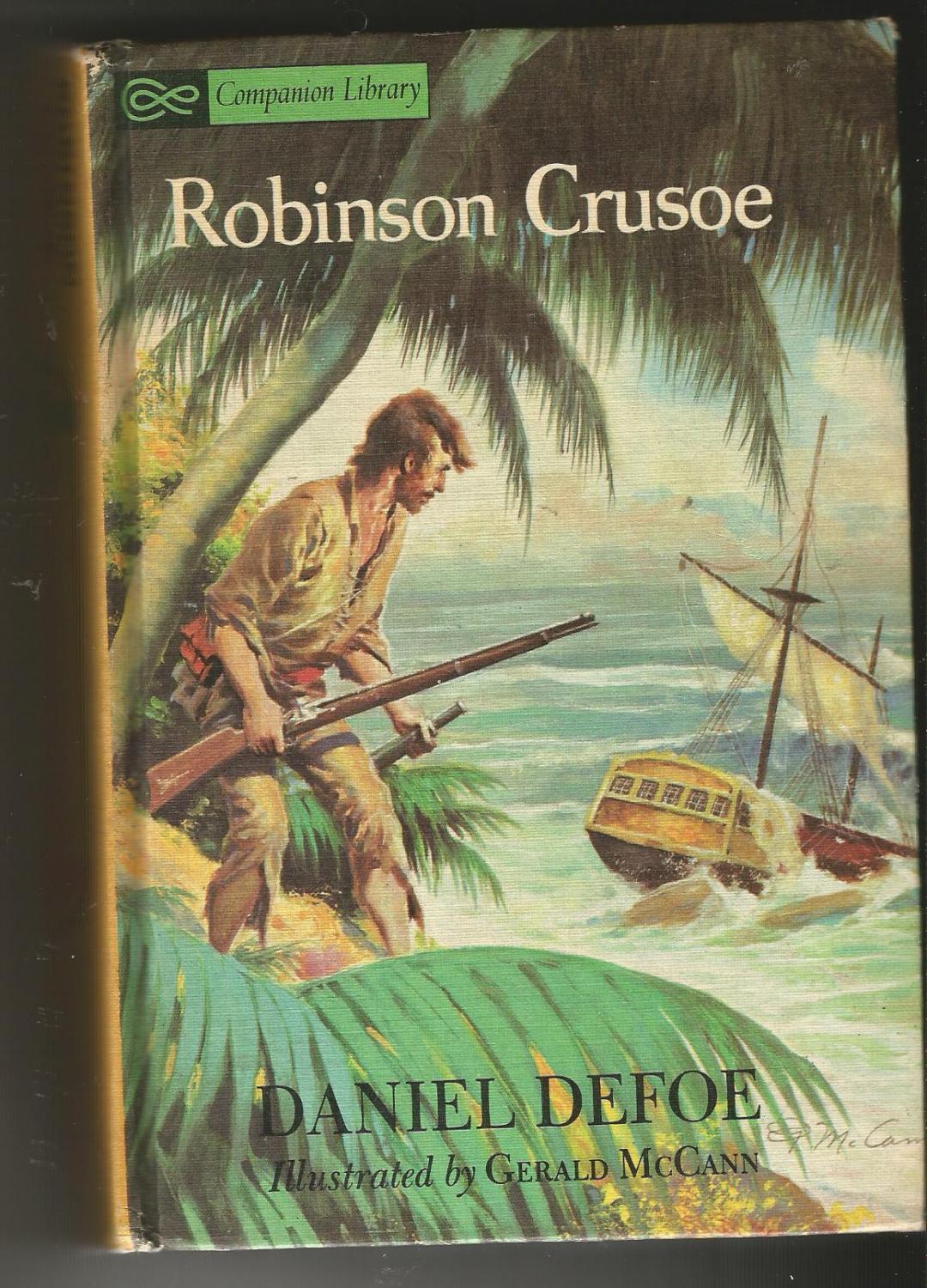
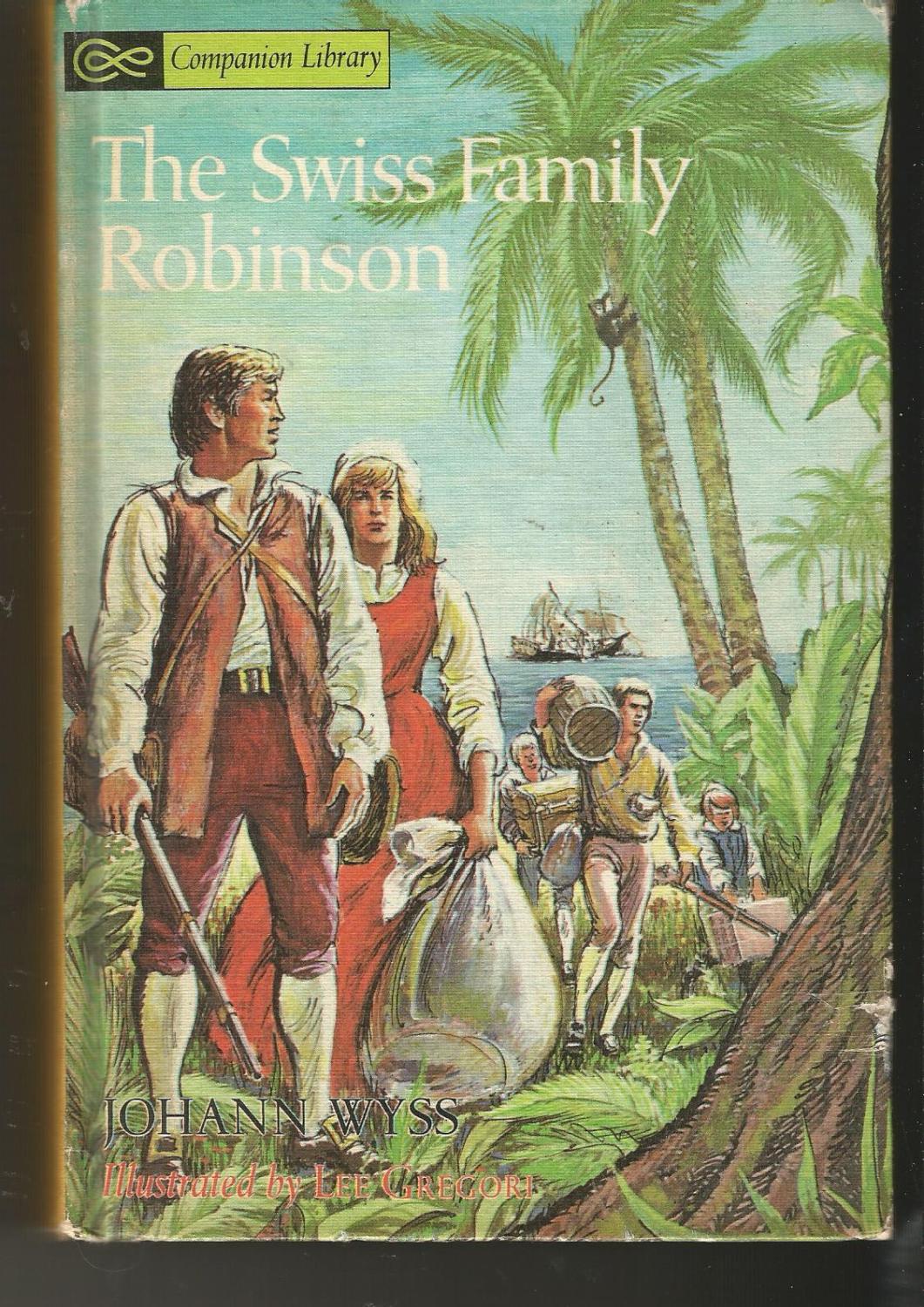
No comments:
Post a Comment